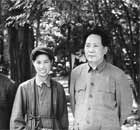Opinion
People's money, people's choice
By Chen Yimin (China Daily)
Updated: 2010-02-05 11:47
 |
Large Medium Small |
The citizens' participation in budget program was initiated in Wenling, Zhejiang province, in July 2005 to encourage more people to take part in politics. For nearly five years since then people have panned the local government's budget, stimulating the functions of the local people's congress.
Precious experience has been gained from the program, making the Wenling formula a model for citizens' participation in politics.
People's participation can be realized in three stages of budget planning: preparation of a draft by a government, its review by the local people's congress and the final assessment.
During the first couple of years of reform and opening up, the Wenling authorities solicited people's opinions on the draft through discussion sessions to encourage them to participate in politics. Government departments put up posters welcoming people to join the discussion forums and express their opinions on the draft.
The authorities invited representatives from different social sectors, too, to ensure that people of every interested group get an opportunity to express their opinions. For example, while discussing the budget on environmental protection, residents who live along the river and executives of enterprises were invited to express their views.
This year, some innovations are being made. Forums will be held before the government prepares the draft, and people's opinions will be recorded and summarized by officials, who would take them into consideration while preparing the text. Though the results of this new measure are still to be seen, we are confident that it will be a step forward.
People's participation in politics enters its second stage - that is, examination by the local people's congress - after the budget draft is prepared. The authorities have now devised a system to enable ordinary citizens to voice their opinions at the local people's congress, too.
During the meeting, deputies to the local people's congress will be divided into small groups, each discussing one topic from the draft. A member of the public can join any group he likes and express his opinion just like a deputy would. A people's congress deputy would have to record individuals' views after questioning him for details and present them at the meeting.
There have been examples when deputies have considered a citizen's opinion important and proposed that he or she be granted the opportunity to deliver a speech at the meeting.
To fully protect the right to information, the Wenling authorities require the government to prepare the budget draft in exact details. For example, sentences such as "the money would be spent on stimulating cultural development" are not appropriate in a draft. Officials preparing the draft have to be specific about how much money would be spent on say building a museum or repairing a primary school.
Besides, the authorities encourage debate on the draft and its clauses, and any individual is welcome to voice a different opinion, either his/her own or that of some other people he trusts. Only when exact details are given and people are encouraged to voice their opinions - no matter how different they are - can a discussion be called successful.
Assessment or examination is the last but most important stage. In fact, it is done by the local people's congress during its annual sessions, which devotes its first part to reviewing last year's budget, and the second to examining the new year's draft.
| ||||
Of course, examining is not the only problem we have faced during the past nearly five years. For example, in this age of information, emerging media like the Internet have quickly become an important channel for people to express their opinions. But given the existing conditions, we have not been able to introduce online interaction, thus making it inconvenient for residents who work far from home to voice their opinions about their hometown.
We are improving the conditions, though, and hope to make it more convenient as soon as possible for people to express their views on how their money would be used.
Several scholars have reached the same conclusion: Transparency in revenue and budget is an important basis of a democratic society. That's why we believe our work is meaningful. Budgets should be supervised by the people, and hence we hope what we are doing in the small town of Wenling will not be restricted to its boundaries, but will spread beyond and help the democratization of the entire society.
The author is deputy director of the Deliberative Democracy Office of Wenling in Zhejiang province.













